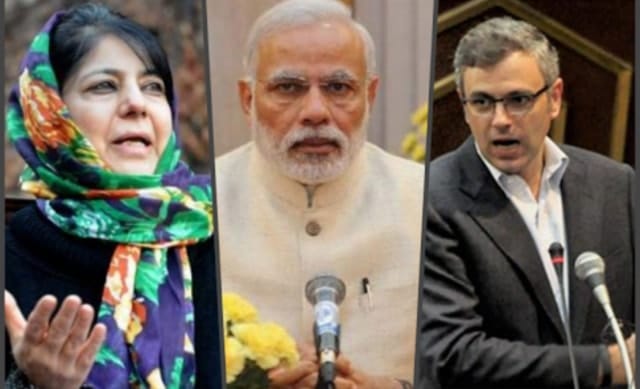What’s the Article 35A Debate About?
This content has been archived. It may no longer be relevant
Anybody who’s paid any attention to the news would see that the Kashmir valley has begun controversy again. The valley, which has always seen turbulence due to heavy militancy, has its own government, constitution and laws. This militancy has become the basis for several limitations being imposed on the State. Therefore, Article 370 and 35A of the Constitution have granted a special status to the State.
Why do we have Article 370 and 35A?
J&K became a part of India following the signing of the instrument of accession by Hari Singh, its ruler, in October 1947. However, when Sheikh Abdullah took over from him in 1949, he renegotiated the leadership. Therefore, Article 370 was added to the Indian Constitution. Under 370, powers of the Union over certain aspects in J&K are restricted.

Following this, another agreement was made in 1952 as a result of which a presidential order was passed in 1954. Through this order, Article 35A. The article defines “permanent residents” and grants special rights and privileges to them.
Who are permanent residents under Article 35A?
It includes:
- People born or settled in the state before 1911.
- People who acquired immovable property in the state for not less than 10 years prior to that date.
- Emigrants from Jammu and Kashmir, which included those who went to Pakistan; they are considered subjects of the state.
- Descendants of emigrants are also considered subjects of the state for up to 2 generations.
Under Article 35A non-permanent residents are prohibited from settling in the state permanently. They are also prohibited from taking government jobs, aid, scholarships and immovable property.
What’s the debate about?
The debate began in 2014 when We the Citizens, a small NGO, approached the court, challenging the article to be unconstitutional. The Article was never floated before the Parliament, prior to being added, therefore it was added illegally.
So, the argument is whether the Article is valid or not.
What’s the political controversy?
It is after a very long time that the valley has seen most political parties as well as leaders of the Hurriyat coming together on an issue. In a seminar in New Delhi on 29th July, Chief Minister of J&K Mehbooba Mufti said, “(If Kashmir’s special status is tampered with) is jhande ko kaandha dene wala koi nahi hoga Kashmir mein (there will be nobody to shoulder the tricolour).”

The Kashmiris are against the move since it would lead to a change in the demographic in the valley. The Hurriyat has raised this as the biggest objection.
Those favouring removing the Article have said that this would be the best way to resolve the Kashmir issue. Many people believe that once the people from the rest of the country settle in the area, it’ll be possible to tackle the problem. Once the people in Kashmir have a glimpse into the lives of those outside, it could act as an incentive for them to create a positive environment.
It is the opinion of the author that the Article 35A needs to be done away with once and for all since it is true that the Kashmir issue and urgent and pertinent. State resources are utilized every day for calming protests and discontent amongst the people. People in Kashmir sustain themselves primarily on state funds, and once new businesses come in, that won’t be possible. People will be forced to work and employment opportunities will be created. This will allow people to earn money for themselves rather than rely on Hurriyat leaders or terror groups for additional financial support.
The author, therefore, stands in strong support for doing away with Article 35A once and for all. It is hoped that this would be the first step, leading to the removal of Article 370 eventually. Fact is that tough times have defined Kashmir, and things are only likely to get worse. Therefore, drastic measures must be taken, for the bigger picture.

